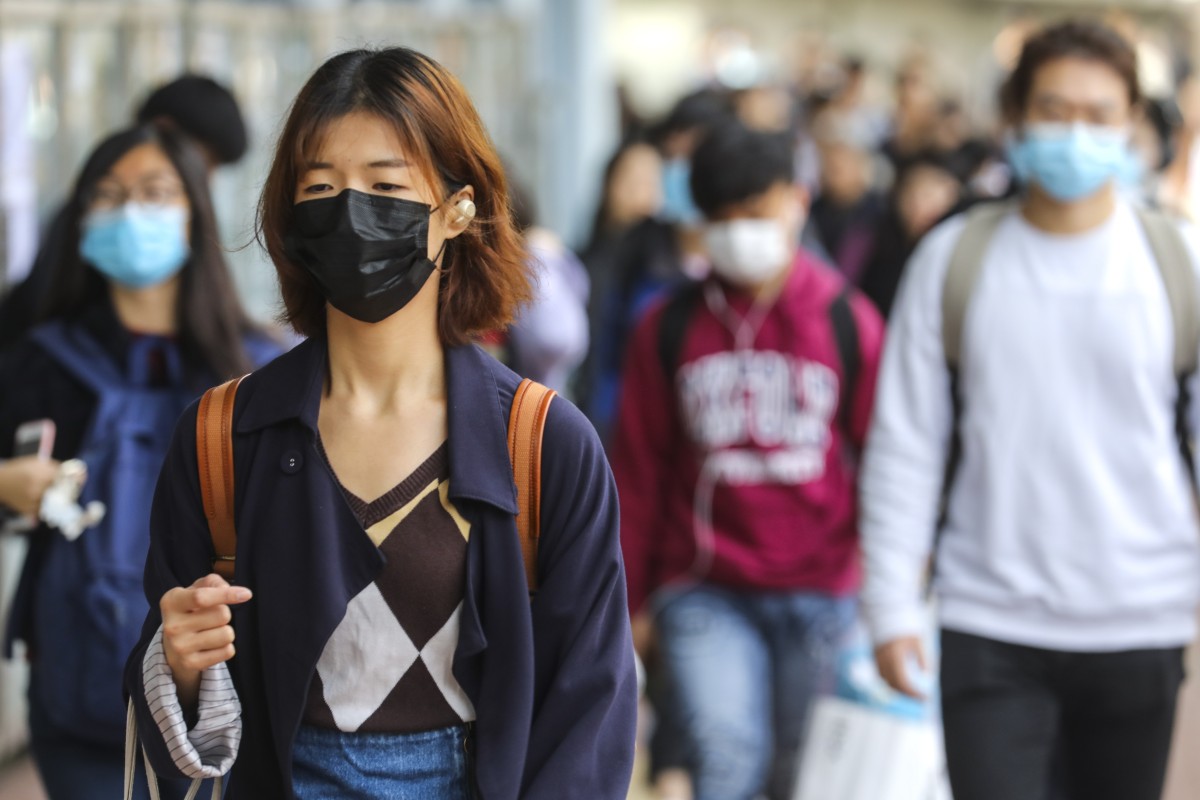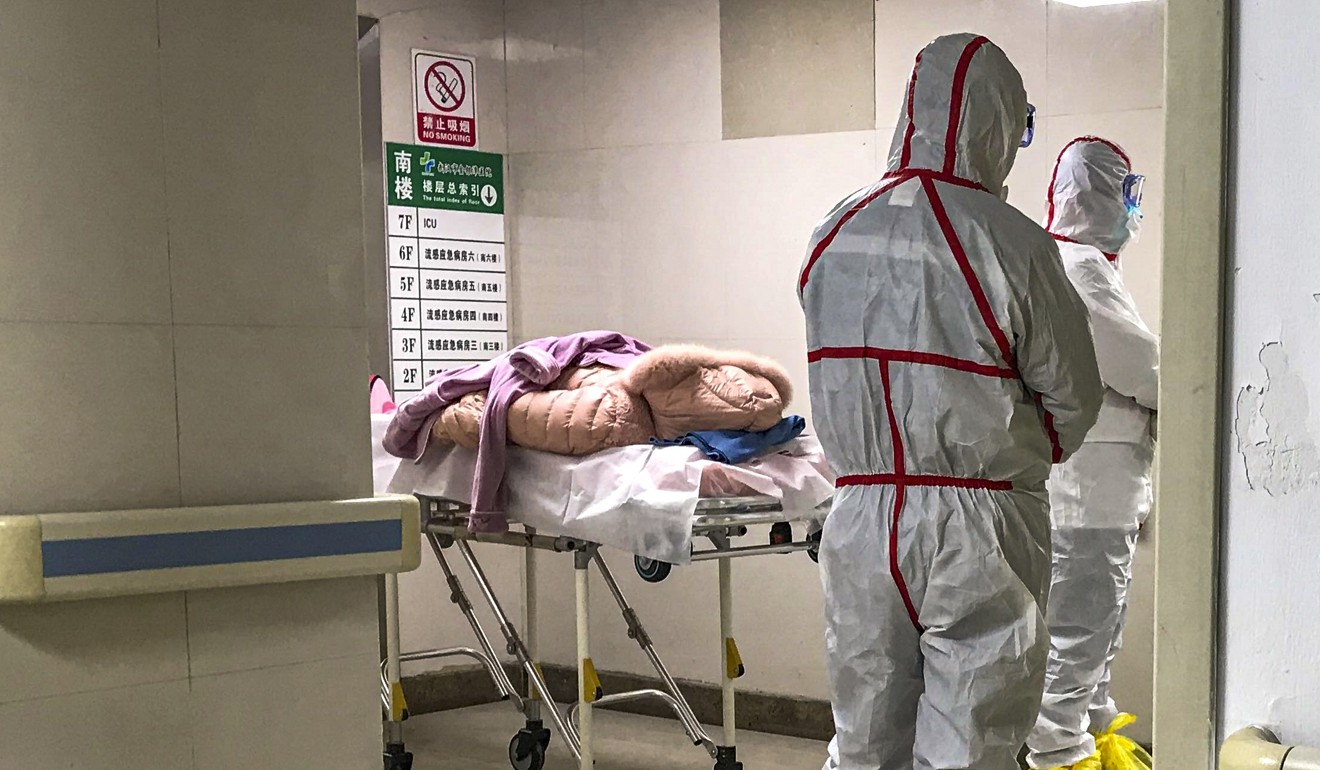A New, Unidentified Virus Is Causing Pneumonia Outbreak in China, Officials Say

(Image: © Shutterstock)
The unidentified viral illness that has sickened dozens in the Chinese city of Wuhan is not severe acute respiratory syndrome (SARS), according to local health officials.
In the early 2000s, an outbreak of SARS swept the globe, infecting more than 8,000 people and killing more than 750, according to the Centers for Disease Control and Prevention. The epidemic began in China and hit the country harder than any other, so when an unknown form of pneumonia recently emerged in Wuhan, it stirred rumors of a second SARS outbreak. Now, local health officials have officially crossed SARS off the list of potential culprits, according to The New York Times.
Officials also confirmed that the mystery illness is not Middle East Respiratory Syndrome (MERS), bird flu or an adenovirus.
As of Sunday (Jan. 5), 59 people in Wuhan have been diagnosed with the unidentified disease, presenting with symptoms of fever, body aches, breathing difficulties and lung injury. The total number of infected people is up from the 44 cases reported last week.
In addition, 21 people who recently visited the city were hospitalized in Hong Kong between Dec. 31 and Jan. 6, according to a report from the Hong Kong health department. The city will also ramp up efforts to spot feverish passengers traveling through its international airport and on its high-speed rail system, according to the report. Health authorities in Singapore are also on the alert for infected travelers and recently quarantined a young girl after her trip to Wuhan. She was later diagnosed with a common viral illness, according to the Singapore Ministry of Health.
Rumors of a potential SARS outbreak gained traction online earlier this month, but Chinese authorities have since censored the hashtag #WuhanSARS and are now investigating eight people in Wuhan who allegedly spread misleading information about the outbreak on social media, The New York Times reported. The government failed to adequately inform the public and international health agencies during the historic SARS epidemic, which may explain the reaction of Chinese citizens to this new illness.
"I have to emphasize this is a new disease, and no one on earth has gone through this before," Leo Poon, a public health expert at the University of Hong Kong, told The New York Times. "I hope this pathogen is a less harmful one so it would not cause a major epidemic similar to SARS. It would be a nightmare for all of us."
As of yet, no health workers have contracted the mystery illness, which may indicate that the virus has not begun to spread between people, Wang Linfa, an expert on emerging infectious diseases at the Duke-NUS Medical School in Singapore, told the Times. "We should not go into panic mode," he said.
- 10 Deadly Diseases That Hopped Across Species
- 27 Devastating Infectious Diseases
- Going Viral: 6 New Findings about Viruses
Originally published on Live Science.
Hong Kong to add mystery respiratory illness to reportable diseases
Disease has sent 59 people to the hospital in the mainland Chinese city of Wuhan

Hong Kong's health chief said Tuesday that a respiratory illness whose cause remains unknown will be added to an official list of diseases that medical practitioners are required to report to the government.
The disease — an unidentified form of viral pneumonia — has sent 59 people to the hospital in the mainland Chinese city of Wuhan, in central Hubei province. As of Sunday, seven were in critical condition, while the rest were stable. Municipal authorities have ruled out SARS, the severe acute respiratory syndrome that killed 700 people in 2002 and 2003.
The disease — an unidentified form of viral pneumonia — has sent 59 people to the hospital in the mainland Chinese city of Wuhan, in central Hubei province. As of Sunday, seven were in critical condition, while the rest were stable. Municipal authorities have ruled out SARS, the severe acute respiratory syndrome that killed 700 people in 2002 and 2003.
In Hong Kong, a total of 15 patients were being treated Sunday for symptoms including fever and respiratory infection after recent visits to Wuhan. It is not clear whether they have the same illness as the Wuhan patients
Speaking at a news conference, the health chief, Sophia Chan, said the "severe respiratory disease associated with a novel infectious agent" will be added to a list of reportable infectious diseases in Hong Kong's Prevention and Control of Disease Ordinance.
The regulation enables the government to take stronger measures against the spread of certain diseases, such as tuberculosis and chicken pox. Actions under the ordinance could include enforcing quarantines or limiting the movement of people who are suspected to have infections.
"Under the amendment, medical practitioners will have to report suspected cases as well as carry out appropriate investigations and follow-ups to the Center for Health Protection under the Department of Health," Chan said.
The U.S. Consulate General in Wuhan issued a health alert Tuesday for the pneumonia outbreak, warning travellers to Wuhan to avoid animals, as well as animal markets and products.
Dr. Gauden Galea, WHO Representative to China, said public health officials in China "remain focused on continued contact tracing, conducting environmental assessments at the wholesale market, and investigations to identify the pathogen causing the outbreak."
WHO is closely monitoring the event and communicating with counterparts in China, Galea added in a emailed statement
Precautions for travellers
Currently, there are no suspected cases in Canada or involving Canadians overseas, Anna Maddison, a spokesperson for the Public Health Agency of Canada (PHAC) said.
Canada's Chief Public Health Officer, Dr. Theresa Tam, is keeping in close contact with her provincial and territorial colleagues, the agency said. PHAC officials are also in close contact with federal partners, the World Health Organization and other international partners.
Maddison pointed to systems to identify, prevent and control the spread of infectious diseases including a global public health intelligence monitoring system that scans the world's open source media
"No matter the destination, travellers should always take precautions against respiratory and other illnesses while travelling, and seek medical attention if they become ill."
During their trip, Canadian travellers to Wuhan city are encouraged to:
- Avoid high-risk areas such as farms, live animal markets, and areas where animals may be slaughtered.
- Avoid contact with animals (alive or dead), including pigs, chickens, ducks and wild birds.
- Avoid surfaces with animal droppings or secretions on them.
Travellers should also wash their hands often, and practise proper cough and sneeze etiquette.
People are encouraged to tell their health-care providers about their travel if they become ill after returning to Canada.
Toronto Pubic Health said the overall risk to residents is considered very low.
"Given that Toronto Pearson International Airport is an international travel hub, Toronto Public Health is actively monitoring this situation, along with provincial and national health agencies," the department added in a release.
With files from CBC News






No comments:
Post a Comment